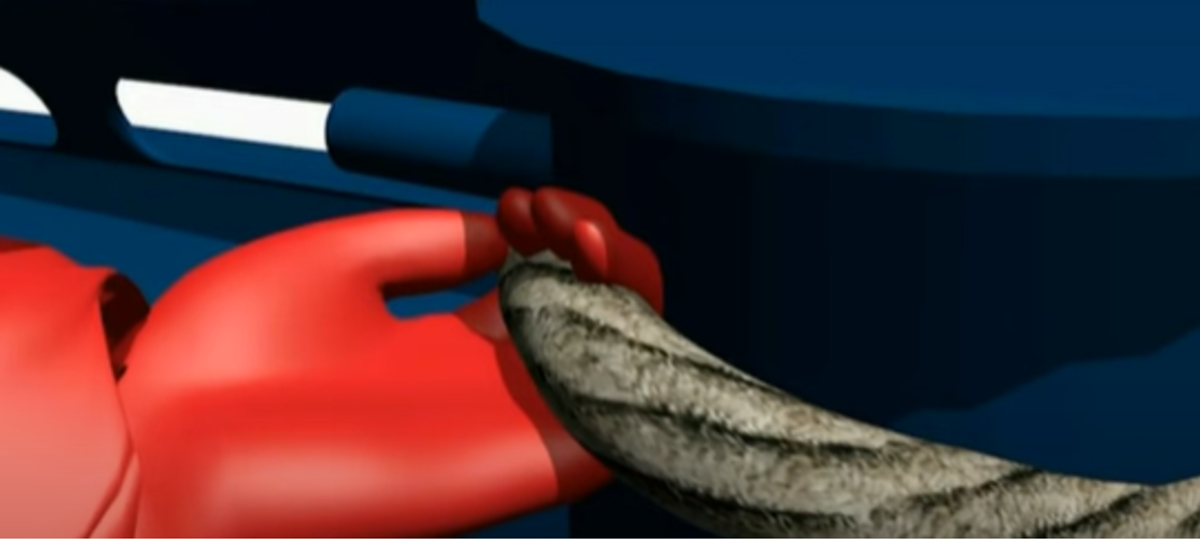LTI finger injury during mooring operations
- Safety Flash
- Published on 4 April 2023
- Generated on 29 April 2025
- IMCA SF 09/23
- 2 minute read
Jump to:
An AB got his left index finger trapped between a bitt and a mooring rope, resulting in a broken finger and 45 days off work.
What happened?
The incident occurred during un-mooring at the end of a ship-to-ship refuelling operation.

What went wrong?
- There was no assessment of the PPE worn by the crew on this job; the impact gloves worn by the AB were in poor condition.
- There was a soft eye at the end of the mooring rope, but no small rope extension was used to remove the soft eye from the bitt.
- The crew on the other vessel did not allow sufficient slack on the mooring rope.
- There was no management oversight or monitoring of inexperienced or “short service” personnel.
Lessons learned
- Ensure short service personnel (persons who are not yet experienced on any given worksite or vessel) are appropriately supervised.
- Our Member started to use small rope extensions on the soft eyes so as to avoid exposing fingers and hands to risk.
- Ensure that sufficient slack is allowed when handling mooring ropes.
Members should review:
- IMCA HSS036 In the line of fire (video)
- IMCA HSS038 Mooring incidents (video)
IMCA Safety Flashes summarise key safety matters and incidents, allowing lessons to be more easily learnt for the benefit of the entire offshore industry.
The effectiveness of the IMCA Safety Flash system depends on the industry sharing information and so avoiding repeat incidents. Incidents are classified according to IOGP's Life Saving Rules.
All information is anonymised or sanitised, as appropriate, and warnings for graphic content included where possible.
IMCA makes every effort to ensure both the accuracy and reliability of the information shared, but is not be liable for any guidance and/or recommendation and/or statement herein contained.
The information contained in this document does not fulfil or replace any individual's or Member's legal, regulatory or other duties or obligations in respect of their operations. Individuals and Members remain solely responsible for the safe, lawful and proper conduct of their operations.
Share your safety incidents with IMCA online. Sign-up to receive Safety Flashes straight to your email.